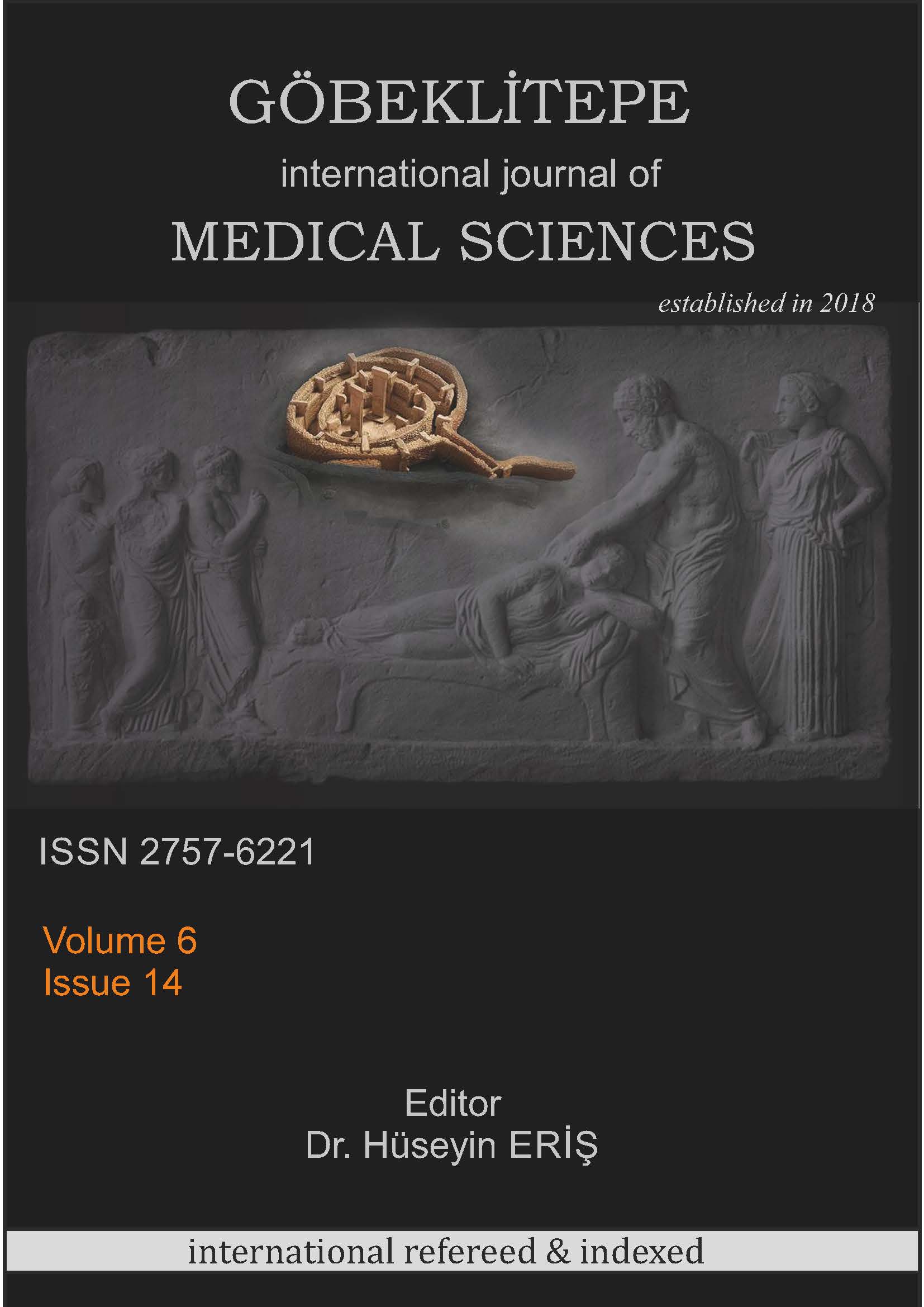THE EFFECT OF NUTRITION AND DEPRESSION STATUS ON QUALITY OF LIFE IN PATIENTS REQUESTING HEMODIALYSIS
DOI:
https://doi.org/10.55433/gsbd/227Keywords:
Nutritional Status, Depression, Hemodialysis, , End-Stage Renal Disease Diet, Quality of LifeAbstract
The research was conducted between January and March 2022 at a private dialysis center in Istanbul, involving 80 patients aged 18 to 65 who were undergoing hemodialysis treatment. The objective was to examine the interplay among nutrition, depression, and quality of life. Patient characteristics, anthropometric measurements, and 24-hour dietary records were collected via a questionnaire. The questionnaire included the Short Form-36 Quality of Life Scale (SF-36), Beck Depression Inventory (BDI), and Subjective Global Assessment (SGA). A significant correlation was observed between depression levels and quality of life scores (p < 0.05). However, no significant links emerged between nutritional status, depression, and quality of life (p > 0.05). A notable connection was found between nutritional status and daily energy/macronutrient intake. Patients with good nutritional status had significantly higher intake than those with poor nutritional status (p < 0.05). Statistical analyses revealed significant and non-significant associations among patient characteristics, quality of life, and depression status. This variability is attributed to various psychological and physiological factors influencing hemodialysis patients' quality of life. The results suggest the importance of personalized nutritional support, nutritional education, and regular monitoring of high-risk patients to mitigate malnutrition and enhance patients' quality of life.
References
Pretto, C. R., Winkelmann, E. R., Hildebrandt, L. M., Barbosa, D. A., Colet, C. D. F., & Stumm, E. M. F. (2020). Quality of life of chronic kidney patients on hemodialysis and related factors. Revista latino-americana de enfermagem, 28.
Alemdar, H., & Cinar Pakyuz, S. (2015). Evaluation of the effect of self-care power on quality of life in hemodialysis patients. Journal of Nephrology Nursing, 2.
Daniel, S. C., Azuero, A., Gutierrez, O. M., & Heaton, K. (2021). Examining the relationship between nutrition, quality of life, and depression in hemodialysis patients. Quality of Life Research, 30, 759-768.
Başarır, S., & Pakyüz, S. Ç. (2015). Evaluation of healthy lifestyle behaviors of hemodialysis patients. Journal of Nephrology Nursing, 10(1), 19-31.
Khan, A., Khan, A. H., Adnan, A. S., Sulaiman, S. A. S., & Mushtaq, S. (2019). Prevalence and predictors of depression among hemodialysis patients: a prospective follow-up study. BMC public health, 19(1), 1-13.
Chuasuwan, A., Pooripussarakul, S., Thakkinstian, A., Ingsathit, A., & Pattanaprateep, O. (2020). Comparisons of quality of life between patients underwent peritoneal dialysis and hemodialysis: a systematic review and meta-analysis. Health and Quality of Life Outcomes, 18, 1-11.
Çalışkan, T., & Pakyüz, S. Ç. (2019). Does itch comfort in hemodialysis treatment impact uremic patients receiving and not receiving hemodialysis treatment?. Journal of Nephrology Nursing, 14(3), 84-96.
Çelebi, Z. K., & Turgut, D. (2020). Cigarette use, nicotine dependence status, and associated factors in hemodialysis patients. Journal of Celal Bayar University Institute of Health Sciences, 7(2), 188-191.
Davenport, A. (2009). The clinical application of CRRT—current status: continuous renal replacement therapies in patients with liver disease. Seminars in Dialysis, 22(2), 169-172.
Dilek, T. A. Ş., & Akyol, A. (2017). Exercise and Chronic Kidney Disease. Journal of Nephrology Nursing, 12(1), 10-19.
Emine, D. A. N. E., & Olgun, N. (2016). Evaluation of psychological resilience status of hemodialysis patients and affecting factors. Journal of Nephrology Nursing, 11(1), 43-54.
Alataş H, Yıldıran H, Yalçın A. Hemodiyaliz tedavisi alan hastalarda besin alımı ile malnütrisyon inflamasyon skoru arasındaki ilişki. Cukurova Medical Journal. 46(2); 418-429, 2021.
Alim NE, Kızıltan G. Kronik Böbrek Hastalığı ve İştah. İzmir Katip Çelebi Üniversitesi Sağlık Bilimleri Fakültesi Dergisi. 1(3); 45-50, 2016.
Karambelkar, A. D., Chawla, L. S., & Busse, L. W. (2020). The perioperative management of the patient with chronic kidney disease. In Chronic Renal Disease (pp. 1291-1307). Academic Press.
Yılmaz, E. (2016). Quality of life and evidence-based practices in patients who underwent kidney transplantation. Journal of Nephrology Nursing, 11(2), 26-39.
Vučković, M., Radić, J., Kolak, E., Nenadić, D. B., Begović, M., & Radić, M. (2023). Body Composition Parameters Correlate to Depression Symptom Levels in Patients Treated with Hemodialysis and Peritoneal Dialysis. International Journal of Environmental Research and Public Health, 20(3), 2285.
Webster, A. C., Nagler, E. V., Morton, R. L., & Masson, P. (2017). Chronic kidney disease. The Lancet, 389(10075), 1238-1252.
Downloads
Published
Versions
- 2024-07-02 (2)
- 2024-01-04 (1)
How to Cite
Issue
Section
License
Copyright (c) 2023 Göbeklitepe Sağlık Bilimleri Dergisi

This work is licensed under a Creative Commons Attribution 4.0 International License.




